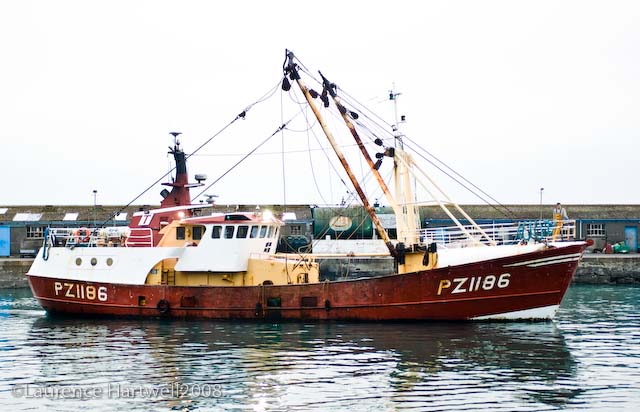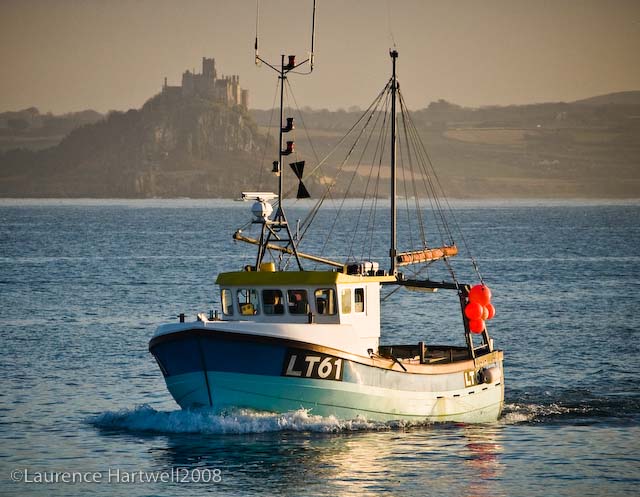In late June 2012, a new association off-shore fishermen was created in France,with the support of ENGOs Greenpeace and WWF. During the press meeting, they stated they want to be representative of the French artisanal fishery, with the support of ENGOs powerful communication means. They also defined “sustainable artisanal fishery” as, small-scale boats, operated by less than 3 men on board.
From the outset this declaration has two main messages:
ENGOs support artisanal fishermen which are supposed not to be represented to EU Commission. This French campaign echoed to the English one 'Be a fishermen friend'. And the other side is to pretend that “small is beautiful” and that are the only ones to be able to undertake sustainable exploitation of the sea.
From inside, things are not that simple :
1) The 2 French small-scale associations which have signed this new association face representation problems within the French regular organisations which are in charge of defending the French industry and are also in charge of managing the exploitation of the coastal see through coastal fishing licenses. The Mediterranean one faces some at-sea conflicts with small-scale trawlers and the Atlantic one, the line bass fishermen, whom are also in conflict with coastal artisanal seiners (bolinche). By giving this definition of artisanal fishery, they also act in a direction to solve internal problems of representation and access to fishing rights.
2) The French NFFO (called CNPM) issued a press release to denounce this position and gave some information to better understand the surrounding facts. They also claimed CNPM acts for the long term in actively defending the fishing industry interests, including artisanal, both small-scale and bigger scale artisanal fishery
3) ENGOs in France face a problem of legitimacy in self declaring that they defend the interests of fishermen. No fishermen's organisation supported the ENGOs document sent to the Commission in late 2011 by OCEAN2012. By acting so, ENGOs tried to support a publicity on their efficiency “in the field” and their ability of being a fishery industry partner (with some views to their own fund raising), tried to establish themselves as representing to the Commission's view which only considers very small fishermen as sustainable fishermen. In a way, it is an attempt to capture popularity and the acceptable image of pro-artisanal defenders.
4) Sustainability is not a question of only the type of fishing boat. In the case of these very small fishing boats, some operate fishing gears which may encounter some sustainability and undersize issues, operated in shallow waters and nursery grounds. The question of managing the global fishing effort is also important. And in some coastal areas, very small fishermen face less constraints and lower enforcement pressure. Playing on a friendly “small is beautiful” image is a short term strategy. Any fisherman is worthy of a respectful attitude, provided he’s acting in a sustainable way, whatever his size is.
Last, but not least, it is quite interesting to both consider similarity between the English “be a fishermen friend” campaign, supported by ENGOs and the French one. In August, the NFFO also issued a press declaration called “Day Trip for Journalists http://www.nffo.org.uk/news/day_trip_journalists_2012.html“ to warn people from this simplistic way of presenting fishery issues,and especially hidden facts related to in reality distributing and managing fishing rights.
The declaration hereafter issued by a Fisherman NGO called “Pêche et Développement” (Fishery and Development) in response to the creation of the ENGOS-supported a new fishermen's association. When reading “deep-sea fishing”, it refers to fishery off the 12 NM lines. In no-way, this press released intends to demonize small-scale fishermen. It aims to give a different view without demonizing ANY fisherman.
Here's the raison d'etre from the NUTFA/Greenpeace alliance referred to in the document above:
Be a Fisherman’s Friend – campaign
on the reform of the EU Common Fisheries Policy
Greenpeace and NUTFA, together with
UK coastal fishermen, are calling for a strong reform to the law that governs
Europe’s fishing industry. This law is called the EU Common Fisheries Policy
(CFP) – and it’s broken. Under the CFP,
our fish and our fishermen are under threat.
The policy favours the most powerful parts of the European fishing
industry, often with the highest environmental impact. Meanwhile,
responsible fishermen, who use sustainable methods, are in real danger of
losing their livelihoods. This threatens the future of our fish and our
seas, and the coastal communities that rely on them.
This year we have a once in a
decade opportunity to fix the broken system, as the CFP is being reformed. So we’re calling on people to be a
Fisherman’s Friend, to show their support for sustainable fishermen, and call for
a real reform that will ensure our fishermen don’t have to hang up their nets
forever.
Greenpeace, together with NUTFA
(New Under Ten Fishermen's Association - representing UK fishing boats under 10 metres in
length) demand a reform that:
·
Gives fishing rights
to those who can clearly demonstrate environmental and social benefits,
rewarding those who support local communities and look after their fisheries.
·
Stops using public
money to bankroll destructive fishing practices both in Europe
and around the world, and ensures that strict European rules apply equally to
all European vessels wherever they fish.
·
Puts the health of
our seas and oceans, and the fish stocks they support, at the very heart of the
CFP. The CFP must bring an end to needless discarding, match fishing effort to
fish stocks and create a better tomorrow for those that fish sustainably.
Working together - NUTFA,
Greenpeace and coastal fishermen
One of the
main campaign objectives is to gain widespread public support for UK fishermen
who use low-impact, sustainable practices. By working together,
Greenpeace, NUTFA and sustainable UK fishermen want to give responsible, small
-scale fishermen a greater voice and political representation in Europe.
We have heard first-hand the struggle that the under-ten metre fleet faces
under the current system, despite the many benefits that it provides to coastal
communities. For example, although representing 77% of the UK fishing fleet, the under-ten
metre fleet only receives 4% of the fishing quota.
While not all small-scale
fishing is perfect and not all big boats are bad, many of the small-scale fleet
do represent sustainable fishing methods that can be a genuine part of the
solution, if properly supported. And ultimately, the CFP must support and
implement low impact fishing, regardless of the size of boat. The
reformed CFP must ensure that fishing rights across Europe
are given to those who fish in the right way.



